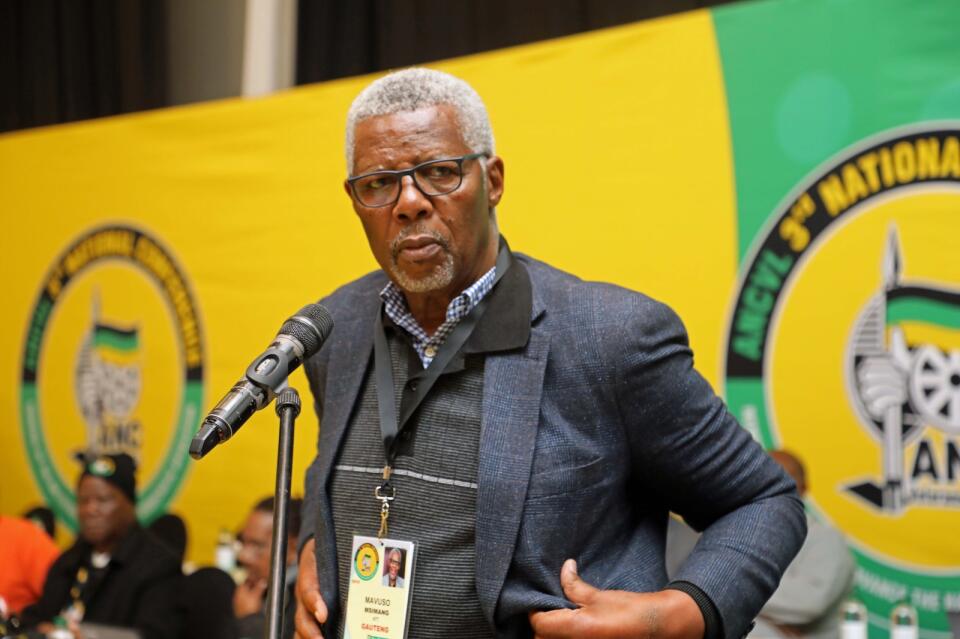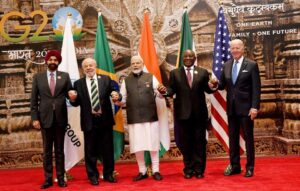Picture: Timothy Bernard / Independent Newspapers / Taken on July 28, 2023 – Dr Mavuso Msimang at the ANC Veterans’ League conference held at Birchwood Hotel, Boksburg, in July this year. Those who are dismissive of Msimang saw his resignation as nothing short of someone who is permanently seeking relevance in the unfolding drama of South African politics, the writer says.
By Sipho Seepe
Dr Mavuso Msimang’s resignation from the once mighty ANC and subsequent change of mind has courted a lot of commentary. And for good reason.
On the one hand, there were those who welcomed Msimang’s decision to leave the ANC. Others have, however, been dismissive arguing that Msimang’s decision smacks of a hypocritical publicity stunt. These were arguably proved right. Those welcoming the move argue that it was about time he walked the talk.
Msimang had become a go-to person whenever a commentary lamenting the sorry state of the ANC and government is sought. He had become the darling of the right-wing and neoliberal outfits. This grouping has understandably welcomed his resignation.
Msimang is no ordinary member of the ANC. He belongs to a selfless group of activists who joined the Struggle against apartheid when doing so was tantamount to signing a death warrant. As a former member of Umkhonto we Sizwe, he served the ANC with distinction. In the parlance of the ANC, he is tried and tested.
Having served in the government in the capacity of director-general, he could speak with authority when it came to identifying the administrative failures of the ANC-led government. No president, except Kgalema Motlanthe and Nelson Mandela, had escaped his caustic tongue-lashing.
At a time when the echo chamber of the mainstream media and so-called civil society found it fashionable to blame former president Jacob Zuma for everything that had gone wrong with the country and Eskom, Msimang broke ranks and put the blame squarely on former president Thabo Mbeki.
Addressing the Interactive Risk 2015 Laboratory, organised by the Institute of Risk Management SA, Msimang argued: “Mbeki admitted that in 1998, Eskom had asked the government for permission to build new power stations. The government rejected the request … economists’ estimates in March this year were that the Eskom crisis had curbed economic growth by as much as 10 percent. A Department of Public Enterprises presentation to Parliament in the same month said Eskom’s power cuts had cost the national economy between R20 billion and R80.1bn.”
Msimang’s most acerbic criticism was reserved for former president Jacob Zuma. Like Chief Justice Zondo and Pravin Gordhan, he never misses an opportunity to speak about Zuma and state capture.
His flip-flopping is no ordinary matter. Arguably it weakens his critical voice within the ranks of the movement that he had served for so long. Msimang could get away with excoriating ANC leaders. Not anymore!
Few would disagree with the litany of failures that Msimang lists in his letter of resignation. The failures are wide-ranging. They range from high unemployment rates due to disastrous policy decisions to maladministration and outright corrupt practices. In this regard, Msimang contends that “the ANC’s own track record of corruption is a cause of great shame”.
“The corruption we once decried is now part of our movement’s DNA. This has had dire consequences for the most vulnerable members of our society … You do not need to dig too deeply to discover that most of the country’s failures are linked to corruption somewhere in the system: a tender that should never have been awarded, a job that should have gone to a better qualified, more deserving and less factionally-aligned person. This is happening on the watch of the ANC government.”
The question for many was not so much a case of Msimang’s identification and enumeration of the ANC’s crises but has more to do with the timing of the decision to resign, and then change his mind.
It would seem that the final straw for Msimang was that “those who seek change by raising voices endure slurs or are met with downright hostility”. As if to underscore his major concerns, Msimang adds. “It’s a pity that the ANC has a person like Mbalula as its secretary general. It is an embarrassment. For an organisation that once boasted the likes of Sol Plaatjie, Oliver Tambo, Duma Nokwe, and a few others to end up with an Mbalula is actually a commentary on the state of the organisation. How did we elect a person like this to that position?”
Arguably his assessment of the current leadership has not changed. Neither has the ANC’s shameful record of misgovernance. The only change is that he has been given an audience. This makes Msimang petulant and immature.
If truth be told, the crisis of leadership goes all the way to the top.
In his recently published book, Leadership for Transformation Since the Dawn of South Africa’s Democracy: An Insider’s View, Professor Malegapuru Makgoba also found President Cyril Ramaphosa to be a master of obfuscation and dangerously lacking in key aspects of leadership: decisiveness, courage and conviction.
Those who are dismissive of Msimang see his resignation as nothing short of someone who is permanently seeking relevance in the unfolding drama of South African politics. They argue that as an elder and a veteran of almost 60 years in the ANC, he certainly should shoulder the blame for what the party has become. He was, after all, at the top or close to the top. He should have used his influence and power to shape the present and the party’s future.
Had he done so, he would have rid the party of the rot he was complaining about. He has failed to nurture the cadreship or the civil service that is ethical and eager to transform things for the better. To a certain extent, Msimang’s belated distancing himself should be seen as an admission of failure and pleading of innocence and dismay at the extent of the rot which is out of control.
Those who concur with this view go further to state that Msimang’s critique of current leadership is thus a position of convenience not to have blood on one’s hand. Jumping ship was a way of saving himself. Evidently, he has now changed his mind.
Others have pointed out, perhaps unfairly so, that the likes of Msimang have all benefited handsomely from the ANC government. As the beneficiaries of the largesse of the ANC-led government should be last to cry foul. They were never that “innocent” to begin with.
Msimang is also damned for having supported Ramaphosa’s presidency. The putrid smell around the funding of his campaign in 2017 should have been sufficient. To Msimang’s credit, he has been outspoken in his critique of the ANC and Ramaphosa’s handling of the Phala Phala scandal.
Ramaphosa has proved to be a constitutional delinquent. The parliamentary panel that looked into the Phala Phala scandal were as clear as crystal in their findings.
The fact that the state organs have been called upon to shield Ramaphosa’s shenanigans cannot erase the findings of the panel that “there was a deliberate intention not to investigate the commission of the crimes committed at Phala Phala openly (and that) the misconduct based on violations of the provisions of section 96(2)(b) and the violation of section 34(1) of the Prevention and Combating of Corrupt Act (Precca) were committed to keep the investigation a secret”.
The panel went further to state that the “president abused his position, as head of state, to have the matter investigated and seeking the assistance of the Namibian president to apprehend a suspect”.
The panel concluded that the president may have committed, 1, a serious violation of section 96(2)(a); 2, a serious violation of section 34(1) of Precca; 3, a serious misconduct in that the president violated section 96(2)(b) by acting in a way that is inconsistent with his office; and 4, a serious misconduct in that the president violated section 96(2)(b) by exposing himself to a situation involving a conflict between his official responsibilities and his private business.
For some odd reason, Msimang has chosen not to refer to these instances of egregious misconduct by Ramaphosa. To redeem himself Msimang’s voice should be more strident in calling for a radical transformation of racially skewed social and economic patterns that still bear the hallmarks of apartheid.
Failure to do so will make him an apologist of the current economic arrangements. It is an indictment for all Africans that 30 years down the line, Africans are in no better situation than they were in 1913 when Sol Plaatjie declared that the South African native found himself, not actually, a slave, but a pariah in the land of his birth”. Today, Africans, who constitute about 80 percent of the population, own arguably around 4 percent of the land.




